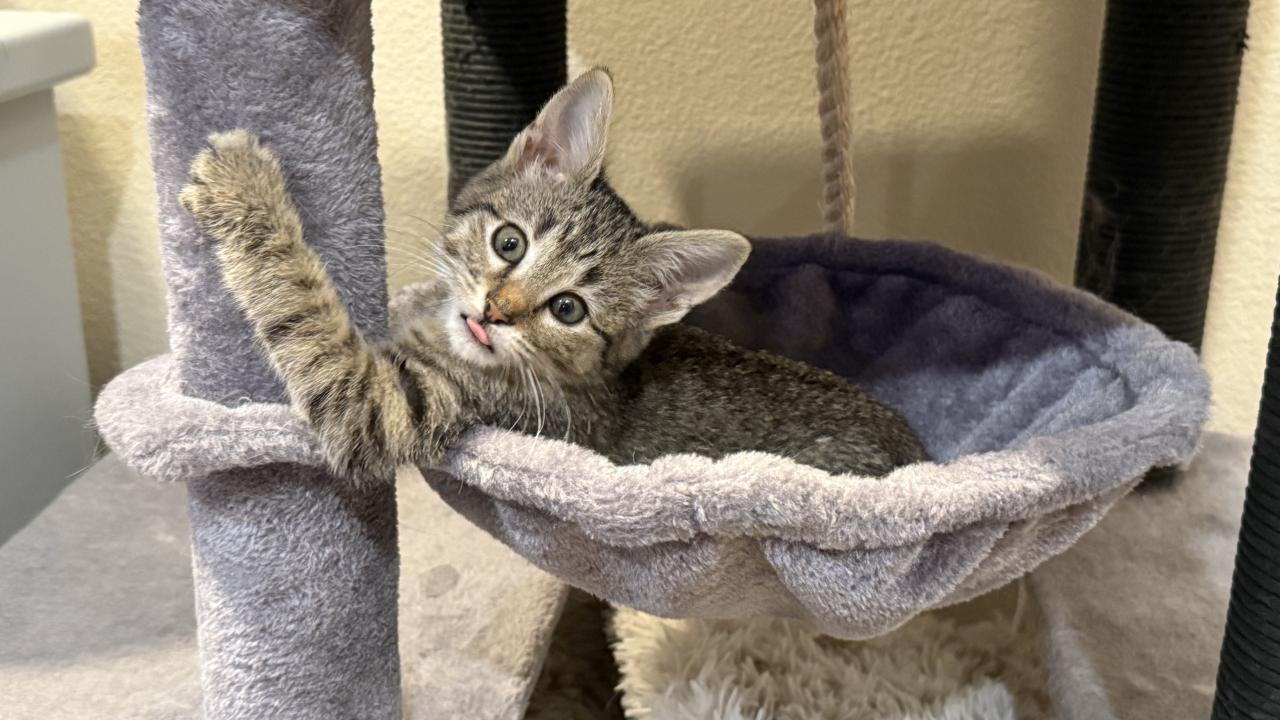
Emergency Surgery Saves Abandoned Kitten
“Case of the Month” – November 2024
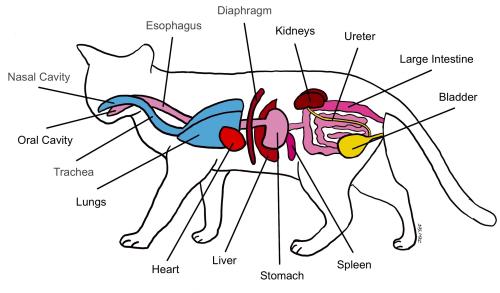
Tuna Sandwich, an approximately 6-week-old female kitten, was brought to the FieldHaven Feline Center by a Good Samaritan after being found abandoned near a Subway restaurant (hence the name). FieldHaven has been a great community partner to UC Davis for more than a decade, presenting many primary care and specialty service patients, as well as clinical trials participants.
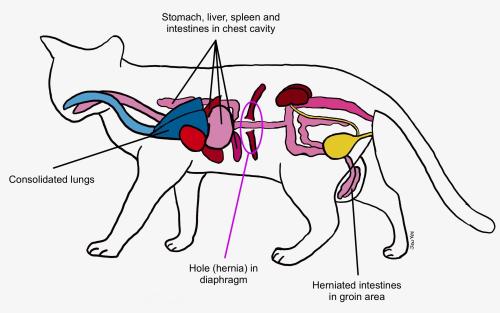
When found, Tuna Sandwich had a visible inguinal hernia (intestines protruding through an opening in the groin) and breathing issues. Dr. Jennifer Yee, medical director of Fieldhaven, examined her and took radiographs (x-rays), which confirmed her suspicion that Tuna Sandwich also had a diaphragmatic hernia, when organs normally situated behind the diaphragm are in front of it due to a birth defect or trauma. In Tuna Sandwich’s case, it is suspected that a traumatic injury, possibly a fall or being hit by a car, caused the hernias.
Dr. Yee was concerned about the potential criticalness of the case, so she contacted the UC Davis veterinary hospital and facilitated an emergency referral to the Soft Tissue Surgery Service.
Tuna Sandwich was received at UC Davis by Dr. Karen Vernau, who works in feline pediatric services and is the faculty advisor for the school’s Orphan Kitten Project. She took over primary care of Tuna Sandwich’s case and worked collaboratively with faculty surgeon Dr. Michael Mison, also chief veterinary medical officer of the hospital, and surgical resident Dr. Alex Aubrecht.
Further imaging by the Diagnostic Imaging Service showed that Tuna Sandwich’s stomach, liver/gall bladder, omentum, small intestines, and spleen were all in her chest instead of behind her diaphragm in her abdomen. The organs were compromising her lungs, causing her respiratory distress.
“A diaphragmatic hernia is a severe condition where organs shift into the chest, putting dangerous pressure on the lungs and heart,” said Dr. Mison. “Timely surgical repair is essential to restore normal breathing, protect vital organs, and give Tuna Sandwich the best chance at a healthy, happy life.”
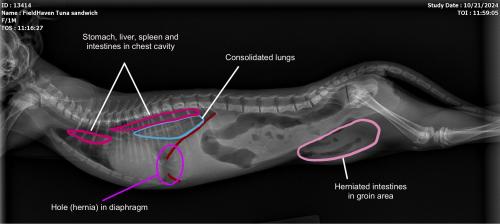
Dr. Aubrecht noted that her case posed challenges, not the least of which was her small size—less than one pound—that significantly increased risks of anesthesia and surgery.
“Unfortunately, waiting until she was larger wasn’t an option,” said Dr. Aubrecht.
The Anesthesia Service prepared Tuna Sandwich for immediate surgery and Drs. Mison and Aubrecht successfully repaired both hernias. She recovered well in the hospital’s Post Anesthesia Recovery room.
“The success of Tuna Sandwich’s surgery was a true team effort,” Dr. Aubrecht said. “Our exceptional surgery and operating room technicians worked swiftly and efficiently to prepare her and the necessary equipment. The anesthesia team managed her most significant perioperative challenges, ensuring stability, warmth, and prompt responses to anesthetic concerns.”
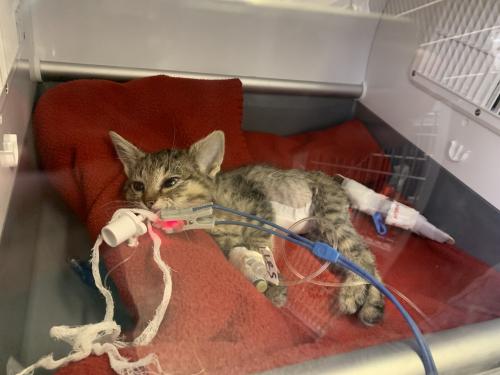
Due to her small stature, she was kept in an incubator overnight to avoid hypothermia. Since Fieldhaven has Dr. Yee on staff and their own medical facilities, Dr. Vernau felt it was advisable to discharge Tuna Sandwich after only one night of hospitalization.
“As this was a medical rescue, I decided to take on the fostering responsibilities once Tuna Sandwich returned to Fieldhaven,” said Dr. Yee.
Tuna Sandwich recuperated well but was required to remain inactive for several days after surgery. Once she was cleared for activity, the kitten loved her new freedom.
“She’s one of those cats that has the spirit of loving life in her,” Dr. Yee said. “She wants to explore everything, and nothing—not even her condition and surgery—was going to stop her.”
Dr. Yee noted she gained stamina throughout her recovery, being able to play for longer periods of time as her recovery went on. She also noted an improvement in her gait from before the surgery, as the inguinal hernia most likely affected the range of motion of her hips.

“Every individual involved played a vital role in Tuna Sandwich’s successful outcome, and it is a true testament to the dedication and skill of the entire team,” said Dr. Aubrecht. “We are all so delighted with her remarkable recovery after such a challenging beginning.”
Now almost a month after surgery, Tuna Sandwich is playing and behaving like a healthy kitten. Dr. Yee continues to foster her and is looking forward to continued growth before spaying her in the coming weeks.
“Tuna Sandwich was under one pound when she had the surgery,” said Dr. Yee. “We like for kittens to be more than two pounds when we spay or neuter them.”
Dr. Yee anticipates that to be in early to mid-December, and Tuna Sandwich will be ready for adoption. Although, Dr. Yee admits she and her husband have grown quite attached to the kitten, and this may become a “foster fail” situation.
# # #
